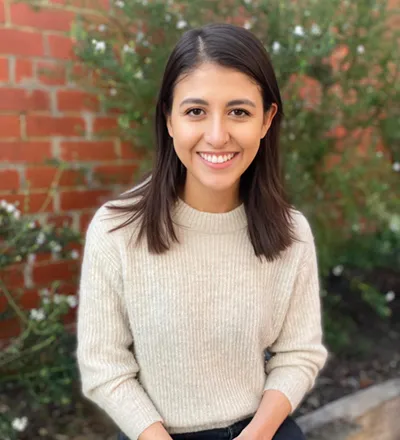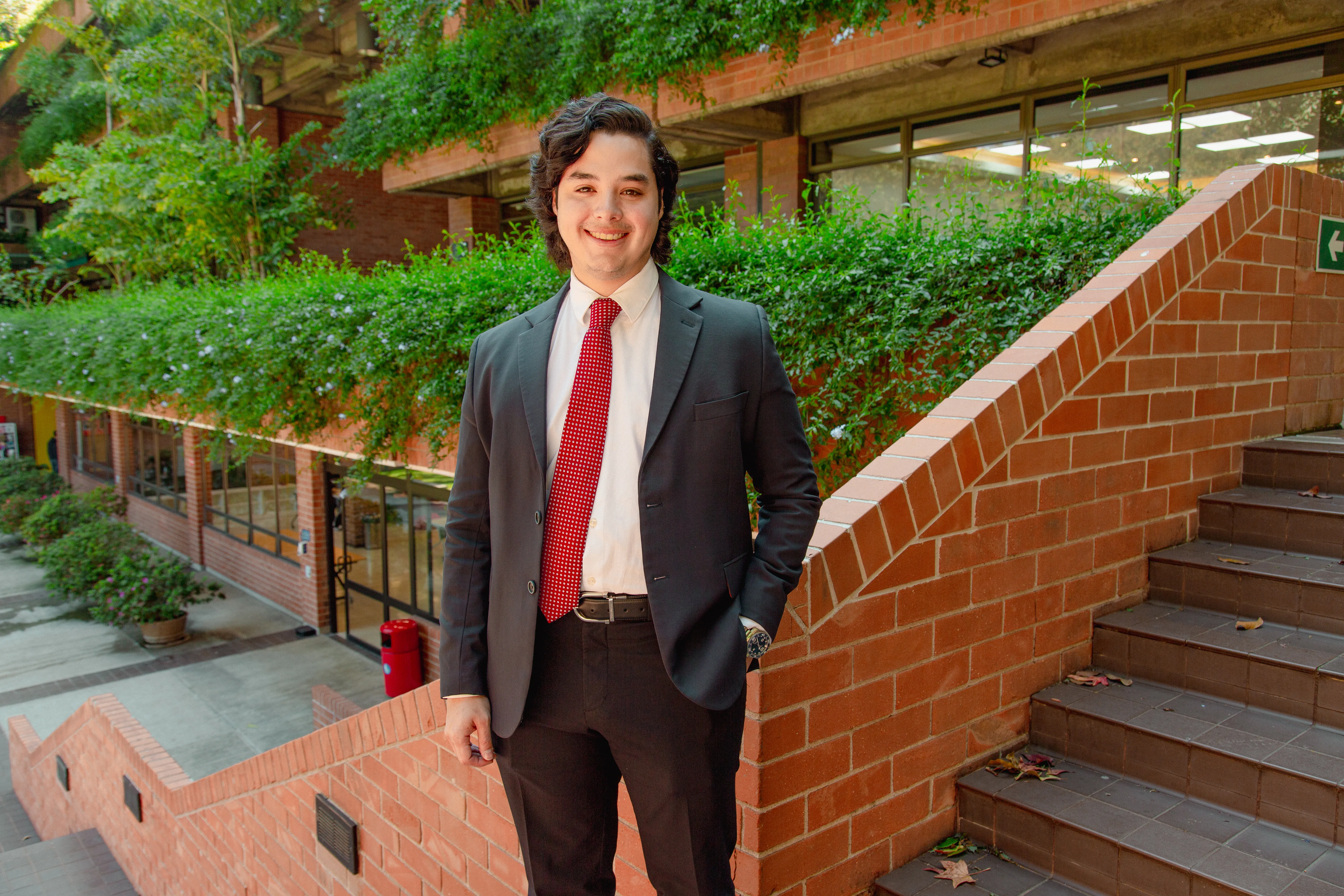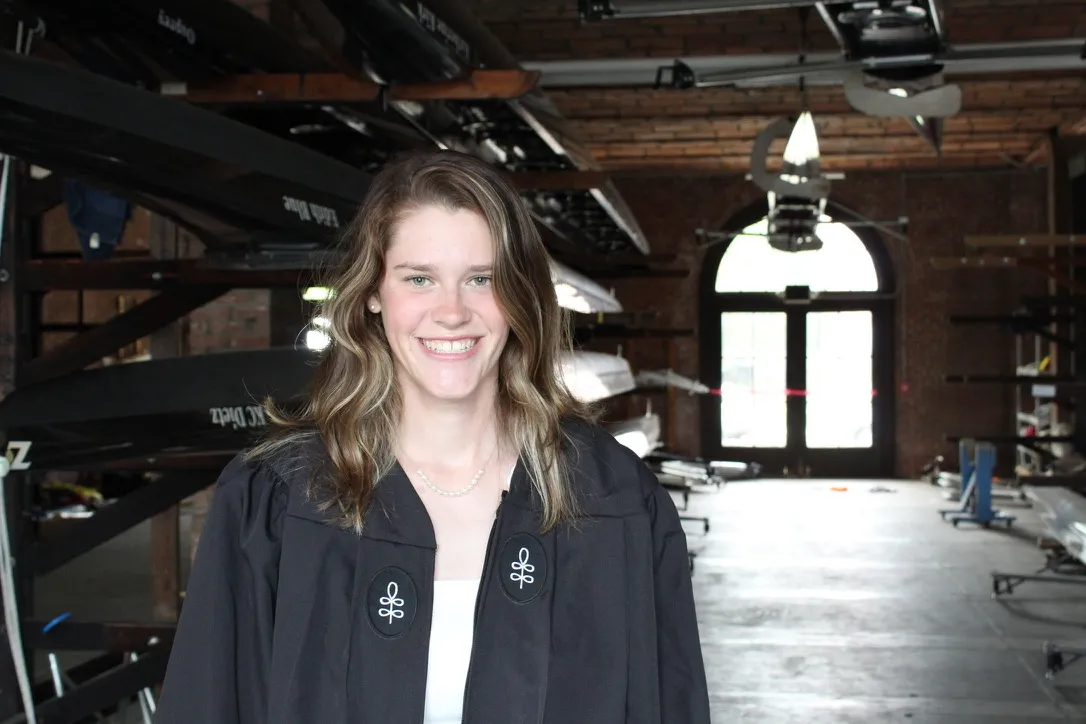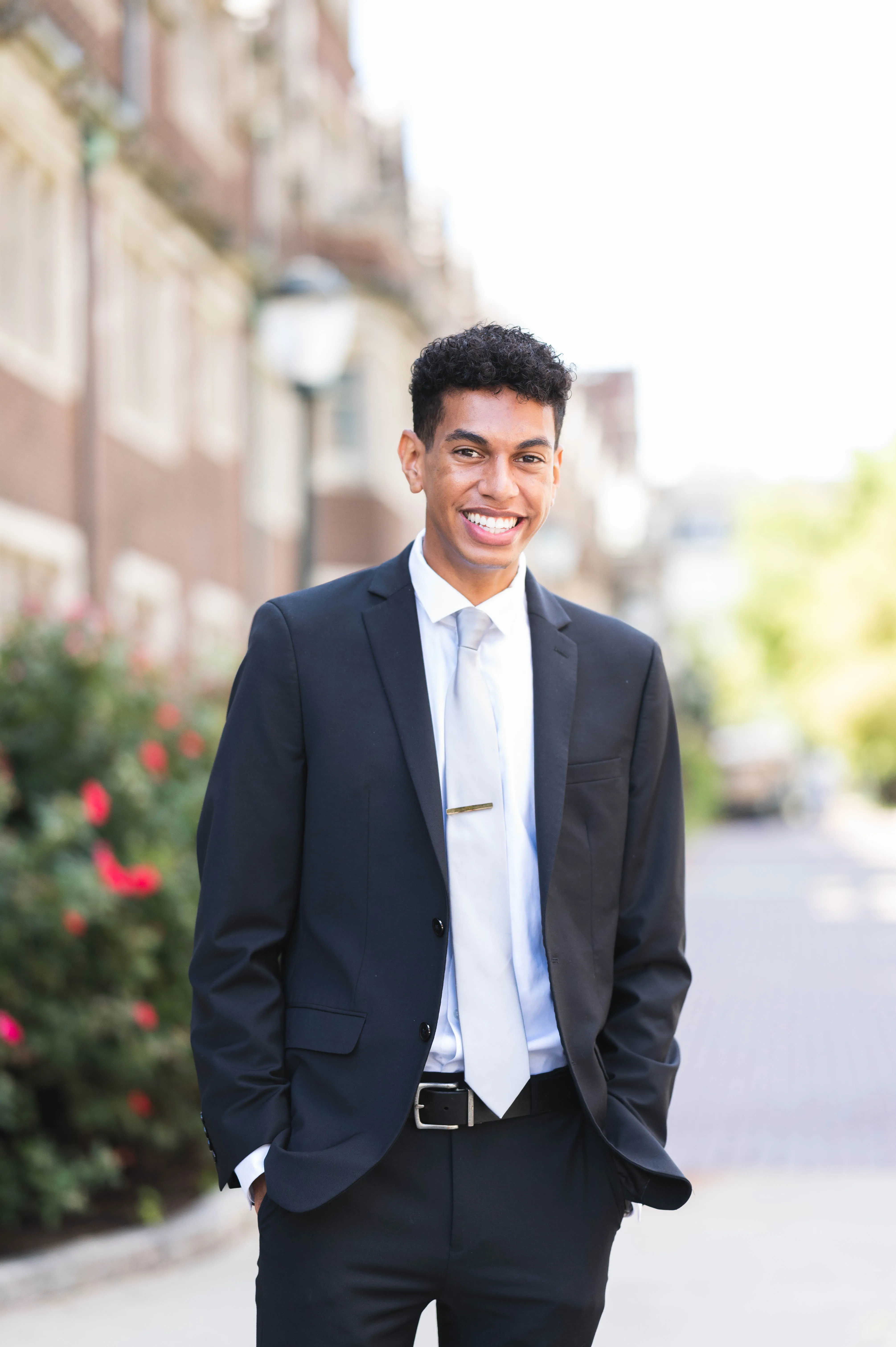Meet the Class: Ana Chaves, ’26

After graduating from Harvard with a degree in Economics, Ana Chaves, ‘26, worked in Zambia and South Africa with an international advisory group that helps global development leaders maximize their impact. She also spent time with a nonprofit London and in government as an economist in Australia. She is originally from Bloomfield Township, Michigan.
Please describe your background and professional path.
I spent my post-college and pre-pandemic years in Lusaka, Zambia and Johannesburg, South Africa. Working with IDInsight, an organization that leverages evidence for social impact, I collaborated on varied projects: implementation of a household survey in rural Zambia, impact advisory for a philanthropy in London, and set-up of a randomized controlled trial in Malawi. In between, I took a couple trips to Ethiopia, summited Table Mountain (it’s not particularly high), befriended a stray cat, and met my now-husband.
With my Australian partner, I relocated to Melbourne for the COVID years, joining the Victorian state government as an economist. I advised on COVID response in a rapidly evolving setting, before benefiting from Australia’s generous maternity leave and welcoming my daughter, Isabella. On return to the Victorian government, the pace of work settled, but the scope widened. Alongside bright policymakers, I contributed to projects ranging from modelling the Victorian labor market to evaluating state approaches to biosecurity.
What motivates your decision to go to law school?
I’m convinced that the legal field presents the best opportunity to improve outcomes for the most disadvantaged globally. I had the opportunity to take a class with Professor James Robinson – now at UChicago! – and his and Daron Acemoglu’s theory of institutions has framed my views since. I think that many efforts to improve outcomes for the global poor are stymied by extractive institutions. I’m moved and motivated by the pathways in the legal field to influence global institutions for the better.
Why did you select the University of Chicago Law School?
I’ve loved UChicago since high school. I love the earnest commitment of the university to academic inquiry, discourse, and curiosity: the university has cultivated a sincere and open community, and I’m thrilled to have the opportunity to join it.
What do you plan to do with your legal education?
I’m committed to working in international human rights with a particular interest in the protection of political dissidents and a free press. Above all, I’m passionate about the promotion of inclusive institutions, believing them to be critical for gains in human welfare.
What are you looking forward to about being a law student?
Easily a tie between the Greenberg seminars and Professor Martha Nussbaum’s roundtable discussions.
What are some of your hobbies or interests?
I took up wheel-throwing as a pandemic hobby: I can make great bowls, acceptable mugs, and mediocre plates.
What is a “fun fact” about you?
I learned a shocking amount about Australian rules football (AFL) in my time in Melbourne. Enough, in fact, to appreciate that a former AFL women’s player, Abbey Holmes, lived in the same suburb as us and frequented the same cafes. On one particular coffee outing, she and her friend noticed my toddler and called her cute.


